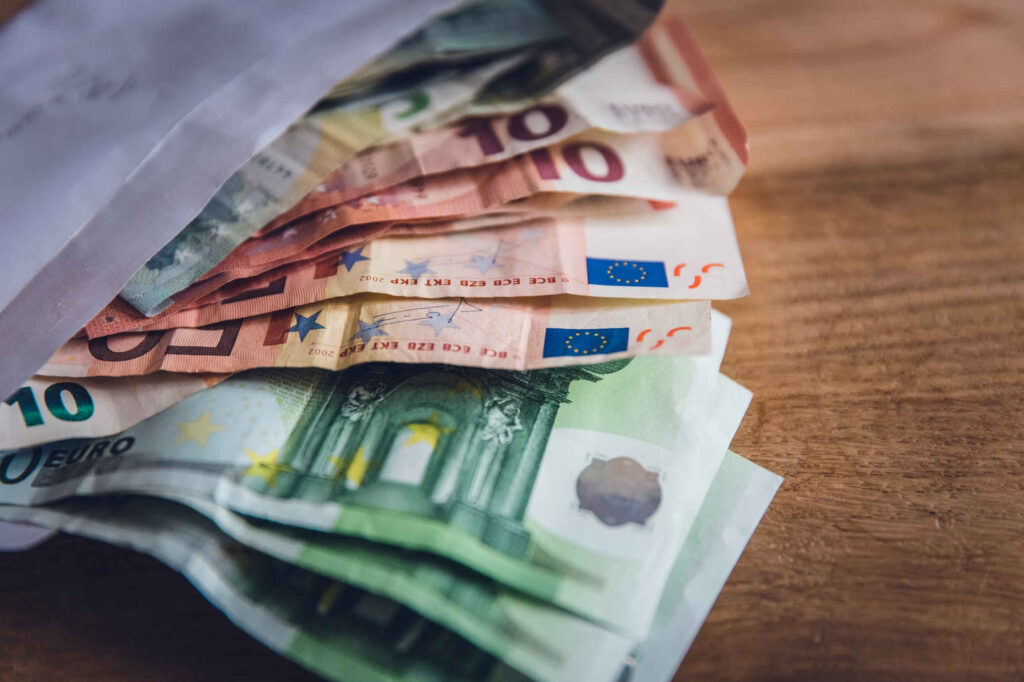The bloc is broadening anti-money laundering measures to include cryptocurrency, luxury goods, and football.
The European Union has put together a preliminary agreement that includes a €10,000 cap on cash payments to address the challenges posed by money laundering and the financing of terrorism. The accord, reached through negotiations among member states and the European Parliament this week, seeks to protect citizens and the EU financial system from illicit financial activities.
However, the proposed legislation raises privacy concerns and fears of state surveillance and government control over how people spend their money, as well as potential abuse of the new powers.
The newly established regulations will impose the cash payment limit on entities engaged in financial services, banking, real estate agencies, asset management firms, casinos, and merchants. Moreover, these entities will be obligated to verify the identity of individuals making cash payments within the range of €3,000 to €10,000.
While member countries have the flexibility to set lower limits for cash payments, the interim agreement introduces a heightened focus on monitoring high-net-worth individuals, a provision advocated for by Members of the European Parliament (MEPs).
Another late night, another deal! @Europarl_EN and @EUCouncil have agreed the new Anti-Money Laundering Regulation.
This means strong, consistent rules across the EU in the fight against dirty money: a game changer.
Congratulations @EU2024BE @DamienCAREME @EeroHeinaluoma pic.twitter.com/xnFL9znOcP
— Mairead McGuinness (@McGuinnessEU) January 18, 2024
In an expansion of the scope of oversight, the interim agreement now encompasses a significant segment of the cryptocurrency sector. Crypto service providers will be required to authenticate customer identities for transactions equal to or exceeding €1,000.
Beginning in 2029, the regulatory framework will be extended to include professional football clubs and agents, which will be categorized as obligated entities. This classification mandates these entities authenticate customer identities, monitor transactions, and promptly report any suspicious money transfers to the financial intelligence services of their respective countries.
The agreement empowers member countries to exclude football clubs and agents from their national lists if they are determined not to pose a risk.
National financial intelligence services and other competent authorities will gain access to information on ownership, bank accounts, and land and property registries. These authorities will also supervise the transfer of ownership for specific luxury goods, setting thresholds at €250,000 for cars and €7.5 million for yachts and aircraft.
The impending implementation of the new legislation has ignited a robust public debate, exposing a diverse range of viewpoints. Heightened apprehensions surrounding potential totalitarian surveillance, especially with exemptions for high-profile individuals, evoke disquieting parallels to Orwell’s ‘1984’ and intensify fears of a dystopian reality.
Skepticism has been cast on the effectiveness of these regulations, prompting queries about their ability to genuinely combat money laundering and fostering calls for a more inclusive strategy that addresses the burgeoning cryptocurrency sector.
Conversely, some interpret the EU’s cash payment cap as a positive stride toward meeting the needs of the contemporary economy. They acknowledge the evolving financial landscapes and the digitization of cash flows, including the growing influence of central bank digital currencies. However, there are those who condemn these measures as excessive state control. The ongoing discourse reflects a polarized perspective on the EU’s actions, encapsulating concerns about potential abuses of power and the necessity of adapting payment methods to contemporary needs. This debate underscores the intricate dynamics between financial regulations, surveillance, and individual freedoms in the digital age.
Image credit: Markus Spiske

We have already Trackfin in Europe, and it is meant to ” track” “finance criminals”. But criminals have been using bitcoins for quite a time. And many citizen do the same as they don t trust what the EU has now become. A fascist, non elected organisation , serving corporate interests. Against european people.
In many countries you cannot withdraw your own money ” without explaining” to your banker the reason for your ” need” of cash.
A short while ago, in the netherland a private person had to explain his grocery expenses to his bank :alas, i am affaid it is true !!
In france, transactions of more than €1000 are in cash ” legally forbidden”.
The truth is that banks are short of cash ( even with quantitative easing) and most of them are very near bankrupt. So they try to keep money in their system. To no avail as
many dont think the euro will live long.
The ones trusting their banks will lose everything.
https://slaynews.com/news/wef-dutch-queen-demands-digital-ids-track-vaccination-status/
Well ” queen” maxima’s father was a criminal, every dutch knows it.
As well as ” king” willem-alexander grand father was a registered nazi ( it has been acknowledge only recently).
So you could say genes don t lie….
Nasty frustrated b…che
Track €1000 because of money laundering?
That’s quite laughable!
It’s about revenue.
CBDC means every transaction generates tax revenue.
Buying the neighbors used bedroom set for cash cheats the government of tax revenue.
They’re going to squeeze for every penny.
no, i am old and always lived on a small budget. I have done quite a lot of bartering in my life. And recycling ” avant l heure”.
If you are smart, you can avoid paying a lot of taxes. I d rather have free time than work for the ” well fare” of civils servants, most of them parasites